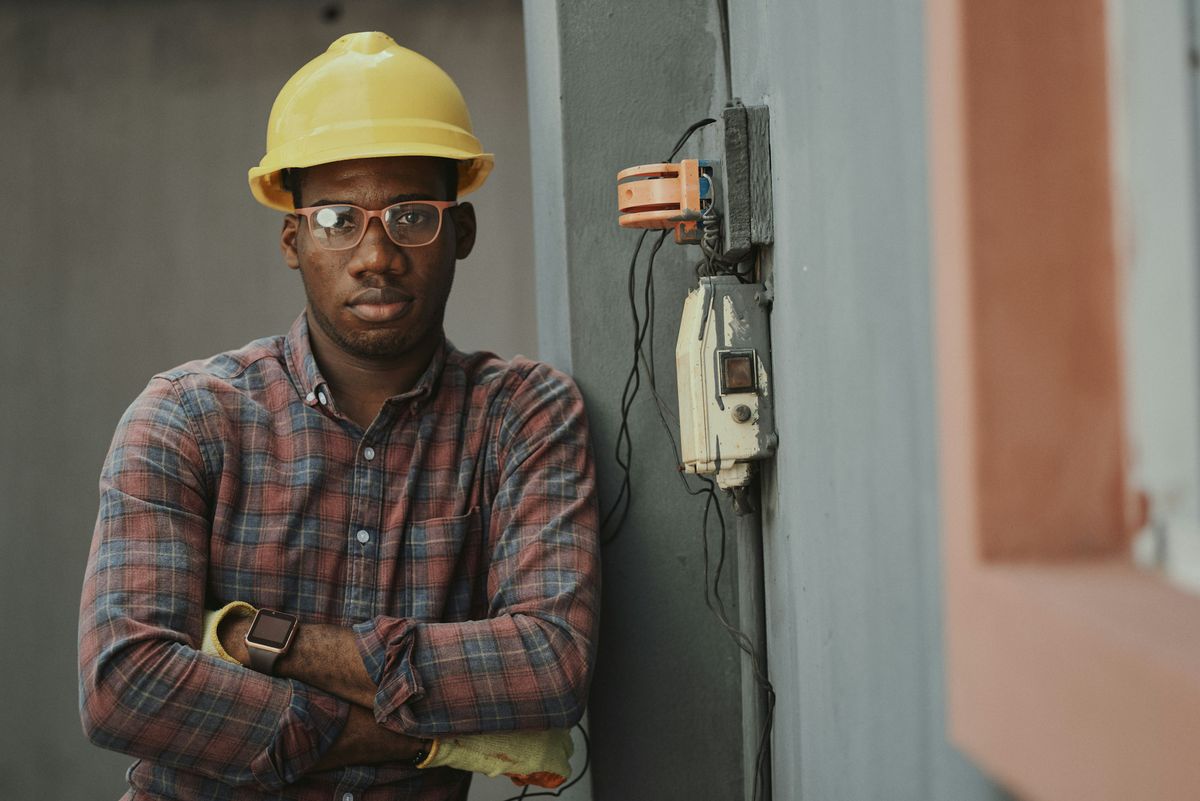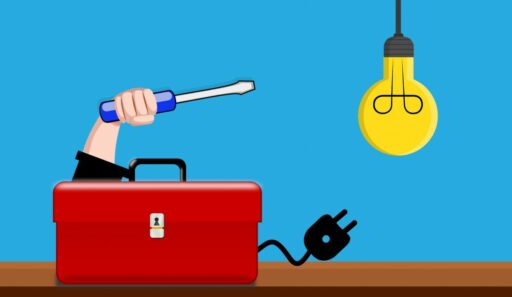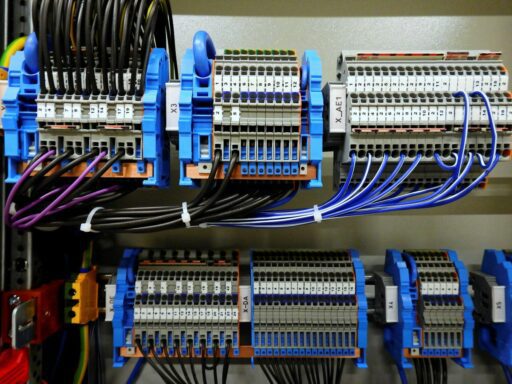Navigating the complexities of home electrical systems is crucial for ensuring safety and preventing disasters. From regular inspections to understanding the intricacies of circuit breakers, grounding, and proper appliance handling, a homeowner’s guide to electrical safety is indispensable. This article delves into the essential practices and interventions that can safeguard homes from electrical hazards. By adhering to these guidelines, homeowners can create a secure environment that’s both functional and tranquil, avoiding the pitfalls of electrical mishaps and the surprise expenses that come with them.
Key Takeaways
- Regular electrical inspections are vital for preempting potential hazards and should be conducted at least annually by professionals.
- Understanding circuit breakers, fuses, and the importance of grounding can significantly enhance the safety of a home’s electrical system.
- Overloading outlets and improper handling of electrical appliances are common mistakes that can lead to dangerous situations.
- Knowing when to call a qualified electrician can prevent the risks associated with DIY electrical work and ensure tasks are performed safely.
- Educating family members on electrical safety and having a plan for emergency situations, such as electrical fires or shocks, is essential.
Understanding the Fundamentals of Home Electrical Systems

The Importance of Regular Electrical Inspections
Regular electrical inspections are a cornerstone of home safety, acting as a preventive measure against potential hazards. By scheduling annual check-ups with a qualified electrician, you can identify and rectify issues before they escalate into serious problems. These inspections are not just about finding faults; they are about ensuring that every component of your home’s electrical system works in harmony, providing peace of mind and safeguarding your household.
- Regular Inspections: Aim for at least once a year to catch potential threats early.
- Professional Help: Always seek the expertise of a licensed electrician for detailed reports.
- System Harmony: Ensure all parts, from wiring to appliances, function together safely.
Maintaining a vigilant approach to electrical inspections is not just a recommendation; it’s a necessity. Overlooking this critical aspect can lead to dire consequences, including electrical fires or shocks. It’s a simple yet effective way to enhance the safety of your home and loved ones.
Deciphering Circuit Breakers and Fuses
Circuit breakers and fuses are the unsung heroes of your home’s electrical system, acting as the first line of defense against overcurrents and short circuits. Understanding their function and maintenance is crucial for home safety.
Circuit breakers are designed to trip and interrupt the flow of electricity when they detect an overload or a short circuit. This prevents wires from overheating and potentially causing a fire. Fuses, on the other hand, have a filament that melts under excessive current, breaking the circuit.
- Circuit Breakers: Automatically resettable safety devices.
- Fuses: One-time use safety devices that need replacement after tripping.
It’s essential to know the location of your electrical panel and how to properly reset a tripped breaker or replace a blown fuse. Regular checks for signs of wear or damage can prevent electrical mishaps.
If you encounter persistent tripping or fuses that blow frequently, it may be a sign of a deeper electrical issue. In such cases, consulting a professional is advised. Remember, a well-maintained electrical system not only ensures safety but also extends the lifespan of your appliances.
The Role of Grounding in Electrical Safety
Grounding is the unsung hero of electrical safety, providing a path for electrical current to safely dissipate into the earth in case of a fault. It’s essential for preventing electrical shock, fires, and damage to appliances.
- Grounding reduces the risk of electrical shock by providing a safe path for stray voltage.
- It helps protect electronic equipment from surges and lightning strikes.
- Proper grounding is crucial for the safety of people and the integrity of the electrical system.
A well-grounded home electrical system is not just a technical requirement; it’s a fundamental aspect of a safe living environment. Ensuring that your home’s electrical system is properly grounded can save lives and prevent property damage.
Remember, while grounding may seem like a minor detail, it is a critical component that should never be overlooked. Regular checks by a qualified electrician can ensure that your home remains a safe haven from electrical hazards.
Mastering Electrical Safety Practices

Avoiding the Pitfalls of Overloading Outlets
Overloading electrical outlets is a common and hazardous mistake. It’s tempting to plug multiple devices into one outlet, especially for high-energy appliances like heaters and kitchen gadgets. However, this can lead to overheating and system failure, with the risk of fire being a grave concern.
- Avoid using multiple power boards or appliances in a single outlet.
- Opt for heavy-duty extension cords for temporary needs.
- Consider having additional outlets professionally installed to accommodate more devices safely.
Overloading not only compromises your home’s electrical system but also poses a significant safety risk. It’s essential to recognize the capacity of your outlets and use them accordingly.
Ignoring the warning signs of an overloaded outlet can lead to severe consequences. If you notice any unusual behavior such as flickering lights, buzzing sounds, or the outlet feeling warm to the touch, it’s time to unplug and seek professional advice. Remember, safety should never be a ‘wait-and-see’ matter.
Proper Handling and Maintenance of Electrical Appliances
Ensuring the safety and longevity of electrical appliances is not just about careful use; it’s also about diligent maintenance. Regular inspections play a pivotal role in this process, helping to identify and rectify potential hazards before they escalate.
- Always follow the manufacturer’s instructions for use and maintenance.
- Keep appliances away from water to prevent electric shock or damage.
- Unplug appliances when not in use to conserve energy and reduce wear.
- Inspect cords and plugs regularly for signs of wear or damage.
Electrical maintenance is the process of ensuring that electrical equipment is kept in good working order. It includes inspecting, testing, and repairing electrical equipment as necessary.
Remember, the goal is to maintain a system where every component, from the wiring to your most-used appliances, works in harmony. Scheduled maintenance isn’t just a routine; it’s a critical measure to ensure the safety of your home’s electrical ecosystem.
The Dos and Don’ts of Dealing with Wires and Cables
When it comes to dealing with wires and cables, it’s crucial to follow a set of guidelines to ensure safety and prevent accidents. Below are some dos and don’ts to keep in mind:
- Do inspect your electrical cords and plugs regularly for signs of wear or damage. This simple step can prevent many potential hazards.
- Don’t overload your outlets with too many power boards or appliances. Instead, consider having additional outlets professionally installed.
- Do use proper safety gear when handling wires and cables to protect yourself from accidental shocks.
- Don’t ignore warning signs like flickering lights or buzzing sounds from your electrical system. These could indicate underlying issues that need immediate attention.
It’s essential to treat wires and cables with the utmost respect and care. Mismanagement can lead to serious electrical accidents, including shocks and fires. By adhering to these safety practices, you can maintain a safe electrical environment in your home.
Professional Intervention: When to Call an Electrician

Identifying Situations that Require Professional Help
It’s crucial to recognize when electrical issues are beyond the scope of DIY fixes and require the expertise of a professional. Electrical work can be complex and dangerous, and certain situations should not be taken lightly. Here are some scenarios where it’s best to call in a qualified electrician:
- Persistent circuit breaker trips or blown fuses
- Flickering or dimming lights throughout the home
- Outlets or switches that are hot to the touch or emit a burning smell
- Any shock or tingle when touching an appliance
- Installation of new lighting or electrical appliances
- Upgrades to your home’s electrical panel or wiring
In the face of these warning signs, it’s imperative to cease any personal attempts at repair and seek professional assistance immediately. The risks associated with electrical work are not worth the potential harm to yourself or your property.
Remember, a reputable electrician will not only resolve the current issue but also provide insights into the overall health of your home’s electrical system. This can prevent future problems and ensure your home meets all safety standards. For those seeking trusted professionals, consider exploring a website page featuring best contractors in various categories, including those specialized in electrical work.
The Benefits of Hiring a Qualified Electrician
When it comes to electrical work, the expertise of a qualified electrician is invaluable. A professional brings not only skill but also a critical eye for safety to every job. By hiring a qualified electrician, homeowners gain peace of mind, knowing that their electrical systems are in capable hands.
- Expertise: A qualified electrician has the necessary training and experience to handle complex electrical issues that might be beyond the scope of DIY efforts.
- Safety: Electricians are trained to identify and mitigate potential hazards, ensuring the safety of your home and family.
- Compliance: Electrical work must adhere to local codes and regulations. Professionals are up-to-date with these requirements, ensuring that all work is compliant.
- Efficiency: With their knowledge, electricians can work efficiently, saving you time and potentially reducing the need for costly repairs in the future.
Choosing the right electrician is crucial. It’s recommended to consult a website page featuring best contractors in various categories to find a reputable professional in your area.
Understanding the Limitations of DIY Electrical Work
While the allure of do-it-yourself solutions is strong, especially with the abundance of online tutorials, electrical work is an area where caution is paramount. Not all electrical tasks are suitable for DIY, and recognizing this boundary is crucial for your safety and the integrity of your home’s electrical system.
- Recognize your limits: Simple tasks like replacing a light bulb or resetting a tripped breaker are generally safe for DIY. However, more complex projects require professional expertise.
- Safety first: Without proper training, you risk electrical shock, fires, or damaging your home’s electrical infrastructure.
- Permits and codes: Many electrical projects require permits and must adhere to local building codes, which professionals are equipped to handle.
It’s essential to understand when a project is beyond your skill level and to seek professional help. The risks associated with electrical work are not worth the potential cost savings of DIY.
Remember, a qualified electrician brings years of training, experience, and knowledge of safety standards to the table. Consulting a reputable electrician can save you from the pitfalls of incorrect installations and ensure that your home remains a safe haven. For guidance on finding the best contractors, consider resources like a website page featuring best contractors in various categories, including residential electrical experts.
Creating a Culture of Electrical Safety at Home

Educating Family Members on Electrical Hazards
Ensuring the safety of our loved ones begins with education. Teaching family members about the dangers of electricity is crucial in preventing accidents and fostering a safe living environment. Start by discussing the basics of how electricity works and the potential risks associated with its misuse.
- Identify common hazards: Educate about the risks of frayed wires, water near electrical sources, and the importance of not overloading outlets.
- Establish safety rules: Set clear guidelines for what is and isn’t allowed, such as not inserting foreign objects into outlets.
- Encourage awareness: Remind family members to be vigilant and report any signs of electrical damage or malfunction.
It’s essential to create an open dialogue about electrical safety. Encourage questions and share stories that illustrate the consequences of neglecting electrical safety measures. By doing so, you can empower your family to make informed decisions and take proactive steps to ensure their well-being.
Implementing a Home Electrical Safety Checklist
A Home Electrical Safety Checklist is a vital tool in maintaining a secure living environment. Regularly reviewing and updating this checklist ensures that all electrical systems and devices are functioning safely and efficiently.
- Inspect all electrical cords for damage or wear. Replace any cords that are frayed or damaged.
- Test smoke detectors and carbon monoxide alarms monthly and change batteries annually.
- Ensure that outlets are not overloaded with too many appliances, which can cause overheating.
- Check for proper wattage in all light fixtures to prevent overheating.
- Keep electrical appliances and tools away from water to avoid shock.
- Schedule professional inspections periodically to assess the electrical system’s condition.
By integrating these practices into your routine, you can significantly reduce the risk of electrical accidents in your home. It’s not just about preventing hazards; it’s about fostering a culture of safety that permeates every aspect of home life.
Promoting Safe Electrical Practices Amongst Households
Promoting safe electrical practices is a collective effort that extends beyond individual actions to encompass the entire household. Fostering a safety-conscious environment is crucial for preventing accidents and ensuring that every family member is aware of the potential hazards associated with improper use of electrical systems.
- Educate all household members about the dangers of electricity.
- Establish clear rules for the use of electrical devices and outlets.
- Encourage the reporting of any electrical issues, no matter how minor they may seem.
By instilling a sense of responsibility and awareness, households can significantly reduce the risk of electrical mishaps. It’s not just about following rules; it’s about understanding the ‘why’ behind them.
Remember, safety is not a one-time lesson but a continuous conversation. Regularly discuss and review electrical safety practices with your family to keep the information fresh and top of mind. This ongoing dialogue ensures that safety becomes a natural and integral part of daily life, rather than a set of imposed restrictions.
Navigating Emergency Situations: A Guide to Electrical First Aid

Steps to Take During an Electrical Fire
When an electrical fire ignites, quick and decisive action is crucial. Do not attempt to extinguish the fire with water as this can lead to electrocution. Instead, follow these steps:
- Turn off the electrical supply at the main breaker if it is safe to do so.
- Use a Class C fire extinguisher to tackle the flames. If you don’t have one, baking soda can be a temporary measure for small fires.
- Evacuate the area immediately and call emergency services.
- Do not re-enter the premises until it has been declared safe by the authorities.
Remember, prevention is key. Regular inspections and maintenance of electrical systems can significantly reduce the risk of fires.
If you’re faced with an electrical fire, your safety and the safety of others is the top priority. After ensuring everyone is out of harm’s way, professional intervention is necessary to address the cause and prevent future incidents.
How to Respond to Electrical Shocks
Electrical shocks can be frightening and dangerous. It’s crucial to know how to respond effectively to minimize harm. Do not touch the victim if they are still in contact with the electrical source. Instead, focus on safely disconnecting the power. Turn off the circuit breaker or unplug the appliance if possible. If you cannot disconnect the power, use a non-conductive object to move the source away from both you and the victim.
Once the power source is secured, assess the victim’s condition. If they are unresponsive or have severe burns, call emergency services immediately. For conscious individuals, look for other injuries and provide reassurance while waiting for professional help.
In the event of an electrical shock, your actions can significantly affect the outcome. Quick and safe intervention is key to preventing further injury.
Remember, after any shock, even if the victim seems fine, it’s important to seek medical attention. Some electrical shock effects may not be immediately apparent.
Preparing Your Home for Electrical Emergencies
Preparing your home for electrical emergencies is a vital step in ensuring the safety and security of your household. Developing an emergency plan and equipping your home with the right tools and knowledge can make all the difference.
- Identify safe evacuation routes from each room and ensure all family members are familiar with them.
- Install smoke detectors and carbon monoxide alarms, testing them regularly to ensure they are functioning properly.
- Keep a fire extinguisher on each floor, especially near areas where electrical fires are more likely to occur, such as the kitchen or garage.
- Maintain a list of emergency contacts, including the number for your local fire department and a trusted electrician.
In the event of an emergency, it’s crucial to stay calm and act quickly. Having a plan in place and practicing it regularly can help prevent panic and reduce the risk of injury or damage.
Remember to regularly review and update your emergency plan, as well as to check the expiration dates on your fire extinguishers and replace batteries in your alarms as needed. By taking these proactive steps, you can create a safer environment for everyone in your home.
Conclusion
In the current of everyday life, the importance of electrical safety often goes unnoticed until a spark of danger ignites. Throughout this article, we’ve illuminated the path to a safer home, from understanding the essentials of electrical systems to embracing the wisdom of regular inspections and the necessity of professional expertise. As we conclude, remember that electrical safety is not a one-time checklist but a continuous journey of awareness and proactive measures. By applying the insights from this manual, homeowners can ensure their abodes are not only powered with convenience but also fortified with the utmost safety. Let’s not wait for a shocking reminder—prioritize electrical safety today and let the tranquility of a well-protected home be the charge that powers your peace of mind.
Frequently Asked Questions
Why is a homeowner’s guide to electrical safety essential?
A homeowner’s guide to electrical safety is crucial because it helps prevent electrical accidents such as fires, shocks, and injuries by providing valuable knowledge on maintaining a safe and functional electrical system at home.
How often should I have my home electrical system inspected?
It is recommended to have your home electrical system inspected at least once a year by a professional to identify and mitigate potential threats before they become serious issues.
What should I do if I encounter an electrical fire at home?
In the event of an electrical fire, you should immediately cut off the power if it’s safe to do so, evacuate the premises, and call emergency services. Do not attempt to extinguish the fire with water as it can conduct electricity.
When should I call a professional electrician?
You should call a professional electrician for regular inspections, installations, repairs, or when you encounter complex electrical issues that go beyond basic troubleshooting and DIY repairs.
What are the dangers of overloading electrical outlets?
Overloading electrical outlets can lead to overheating, which may cause fires or damage to your electrical system and appliances. It’s important to distribute electrical devices across multiple outlets and use power strips wisely.
How important is grounding in my home’s electrical system?
Grounding is vital as it provides a safe path for excess electricity to travel directly to the ground, reducing the risk of electrical shocks, fires, and damage to appliances during a power surge or fault.





